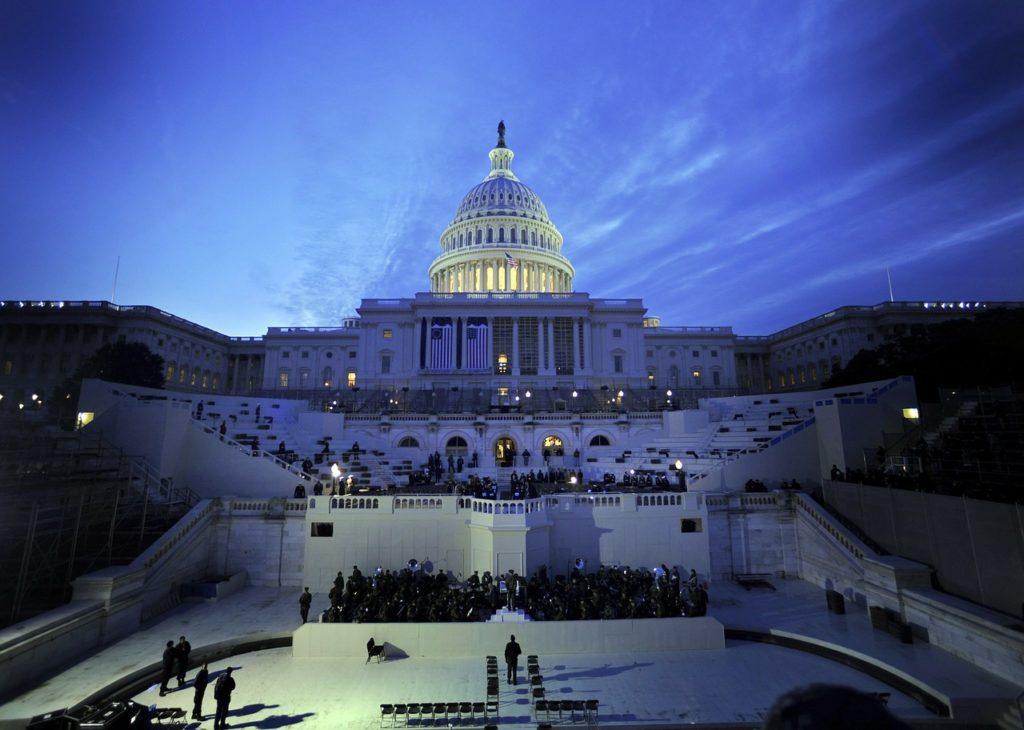After days of tense negotiations between Republicans and Democrats, the U.S. Senate has passed a $2 trillion bill designed to boost the national economy during the COVID-19 crisis. The legislation contains language that would allow hospice providers to perform face-to-face encounters via telehealth as well as a suspension of payment sequestration.
The Coronavirus Aid, Relief, and Economic Security Act, also called the CARES ACT, is designed to provide aid to businesses and individuals reeling from the impact of the COVID-Pandemic.
“At last, we have a deal. After days of intense discussions, the Senate has reached a bipartisan agreement on a historic relief package for this pandemic.” Senate Majority Leader Mitch McConnell said on the Senate floor.
The bill is among the largest outlays of funds by Congress in U.S. history. In addition to the hospice provisions, if enacted it would provide $250 billion for direct payments to individuals and families, $500 billion in loans for industries hit hard by the outbreak, dollars for small business loans totaling $350 billion, $250 billion in unemployment insurance benefits, and numerous other provisions.
The ability to conduct face-to-face encounters has been one of the hospice industry’s most urgent requests during the pandemic.
The Medicare Conditions of Participation currently require hospice physicians to conduct a face-to-face visit in order to re-certify patients for hospice care. Earlier in the crisis, CMS took steps to temporarily expand the use of telehealth, but hospice face-to-face encounters were not included.
“Allowing hospice providers to utilize technologies to support the face-to-face encounter requirement — as included in this third stimulus package — is vital to ensuring patients are able to remain on hospice care, that the threat of COVID-19 spread is minimized — particularly among home caregiving staff and vulnerable hospice patients — and that hospices are able to use caregiving staff in the most efficient way possible,” Theresa Forster, vice president for Hospice Policy at the National Association for Home Care & Hospice, told Hospice News. “This is one of our key priorities for legislative action, and we are grateful to members of the Senate and House for including this change in the pending relief package.”
If enacted, the bill would also temporarily suspend sequestration. Under the auspices of the Budget Control Act, CMS in 2014 began reducing payments to hospice providers by 2% across the board. Under current law, a hospice provider must return payments to CMS if the total paid exceeds the Medicare payment cap allowance. Presently, CMS includes the sequestered 2% as part of the total, even though hospice providers never received those funds.
In addition to the hospice-specific components of the bill, providers could benefit from some items directed at the health care system at large. These including $100 billion fund to support diagnosis, treatment and response to actual cases of coronavirus and a $3.5 billion boost to the Child Care Development Block Grant program which would aid essential workers obtain child care, including health care providers and first responders among others.
The legislation also promises $130 billion to support the nation’s hospitals, as well as $150 in grants to state and local governments to aid with COVID-19 response costs.
The White House has expressed support for the legislation, which must now go to the House of Representatives. If the House approves the bill, it would then go to a conference of members of both chambers to resolve any discrepancies between the House and Senate versions.
Speaker of the House Nancy Pelosi (D-Calif.) indicated that she is seeking speedy passage of the bill by unanimous consent. Any member of her Congressional chamber could block such action, requiring a vote on the House floor.
Though hospice providers continue to face dire challenges related to the pandemic, many can breathe a sigh of relief with the prospect of expanded use of telehealth and suspension of sequestration.
“Flexibilities are needed to meet these very challenging circumstances and we are heartened to see some measures that we have been advocating for were included in the stimulus legislation that the Senate passed today,” Edo Banach, president and CEO of the National Hospice & Palliative Organization, said.



